Cucumbers, scientifically known as Cucumis sativus, are widely cultivated and enjoyed as a refreshing and nutritious vegetable. With their high water content and crisp texture, cucumbers are not only a hydrating snack but also offer a range of cucumber benefits for your health. In this article, we will delve into the scientific research to explore the potential health benefits associated with consuming cucumbers.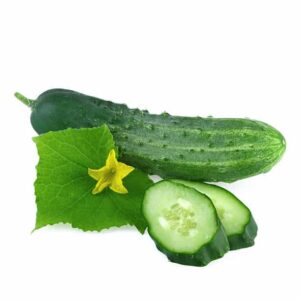
Hydration and Nutrient Content
Cucumbers are composed of about 95% water, making them an excellent choice to stay hydrated, especially during hot summer months. Additionally, they are low in calories and contain essential nutrients such as vitamin C, vitamin K, potassium, and dietary fiber. These nutrients contribute to overall health and wellbeing.
Furthermore, cucumbers possess unique characteristics that enhance their hydrating properties. Their high water content not only aids in replenishing fluids lost through perspiration but also contributes to a refreshing and cooling sensation when consumed. This attribute makes cucumbers an ideal choice for combating dehydration, particularly in regions with hot climates or during strenuous physical activity. Moreover, their crisp and juicy texture adds to their hydrating appeal, providing a satisfying way to quench thirst while promoting hydration at a cellular level.
Reference: USDA FoodData Central. (2021). Cucumber, with peel, raw.
 Antioxidant and Anti-inflammatory Properties
Antioxidant and Anti-inflammatory Properties
Cucumbers are rich in antioxidants, including flavonoids, tannins, and vitamin C. These compounds help scavenge harmful free radicals in the body, reducing oxidative stress and inflammation. A study published in the Journal of Aging and Physical Activity found that cucumber supplementation increased antioxidant capacity and decreased markers of oxidative stress in older adults.
Moreover, cucumbers contain unique bioactive compounds such as cucurbitacins and lignans, which exhibit potent anti-inflammatory effects. These compounds inhibit the activity of pro-inflammatory enzymes and cytokines, thereby reducing the risk of chronic inflammation-related diseases like arthritis and cardiovascular conditions. Additionally, cucumbers are a rich source of silica, a mineral known for its role in promoting collagen synthesis and maintaining skin elasticity. This not only contributes to the cucumber’s anti-inflammatory properties but also enhances skin health, making cucumbers a popular ingredient in skincare products and remedies for soothing skin irritation and reducing puffiness.
Furthermore, the water content of cucumbers, which exceeds 95%, plays a crucial role in their antioxidant and anti-inflammatory effects. Proper hydration is essential for optimal cellular function and detoxification processes, both of which are central to combating oxidative stress and inflammation. The high water content of cucumbers not only helps flush out toxins from the body but also ensures efficient nutrient delivery to cells, supporting overall health and vitality. This hydration factor, combined with cucumbers’ rich nutrient profile, makes them an excellent addition to a balanced diet for promoting longevity and reducing the risk of chronic diseases associated with inflammation and oxidative damage.
Reference: Ganjali, S., et al. (2018). Effects of Cucumis sativus supplementation on antioxidant capacity, lipid peroxidation and serum lipids in healthy sedentary elderly. Journal of Aging and Physical Activity, 26(1), 83-90.
 Digestive Health
Digestive Health
The high water and fiber content in cucumbers can support healthy digestion. Fiber aids in maintaining regular bowel movements and promoting the growth of beneficial gut bacteria. Moreover, cucumbers contain a compound called cucurbitacin, which has been shown to possess anti-inflammatory and anticancer properties, potentially benefiting digestive health.
Cucumbers are also a rich source of antioxidants, including flavonoids and tannins, which help reduce inflammation in the digestive tract and protect against gastrointestinal disorders such as ulcers and gastritis. Additionally, the high water content in cucumbers aids in hydration, which is crucial for maintaining optimal digestive function. Proper hydration ensures that food moves smoothly through the digestive system, preventing constipation and promoting overall digestive health.
Furthermore, the skin of cucumbers contains insoluble fiber, which adds bulk to stool and facilitates its passage through the intestines. This not only promotes regularity but also helps prevent conditions like diverticulitis and hemorrhoids. The combination of water, fiber, and antioxidants in cucumbers makes them a valuable addition to a balanced diet for supporting digestive wellness.
Reference: Patel, S. (2017). Cucurbitacins type triterpenes: Chemical and biological significance. Biological Reviews, 92(1), 292-308
 Skin Health
Skin Health
Cucumbers are often used in skincare routines due to their soothing and hydrating properties. The presence of vitamins and minerals, such as vitamin C and silica, can help nourish the skin and promote a healthy complexion. A study published in the Journal of Drugs in Dermatology highlighted the potential benefits of cucumber extract in improving skin hydration and elasticity.
Cucumbers contain a high water content, making them excellent natural moisturizers for the skin. This hydration helps in maintaining the skin’s moisture balance, preventing dryness and enhancing overall skin health. Additionally, cucumbers possess anti-inflammatory properties, which can help soothe irritated or inflamed skin conditions such as acne or sunburn.
Moreover, the presence of antioxidants in cucumbers, such as flavonoids and tannins, contributes to their ability to protect the skin from environmental stressors and oxidative damage. These antioxidants work to neutralize free radicals that can lead to premature aging and skin damage, thus promoting a youthful and radiant complexion. Incorporating cucumbers into skincare routines, whether through direct application or consumption, can complement other skincare practices and contribute to achieving healthy, glowing skin.
Reference: Graf, A., et al. (2014). The efficacy of cucumber extract for the treatment of skin roughness and dyspigmentation: Results from a randomized, controlled, double-blind study. Journal of Drugs in Dermatology, 13(7), 780-783
 Weight Management
Weight Management
Given their low calorie and high water content, cucumbers can be a valuable addition to a weight management diet. The fiber in cucumbers promotes satiety and can help control appetite, potentially aiding in weight loss. Additionally, the presence of bioactive compounds, such as lignans and cucurbitacins, may contribute to the regulation of body weight.
Furthermore, cucumbers are exceptionally low in calories, with only about 15 calories per 100 grams, making them an ideal choice for those looking to reduce calorie intake while still feeling satisfied. Their high water content not only aids in hydration but also adds bulk to meals without adding significant calories. This makes cucumbers an excellent option for those seeking to create volume in their meals without consuming excess energy.
Moreover, cucumbers are rich in vitamins and minerals, including vitamin K, vitamin C, potassium, and magnesium, which are essential for overall health and well-being. These nutrients support various metabolic functions in the body, including energy production and nutrient absorption, which are vital aspects of weight management. Additionally, the presence of antioxidants in cucumbers, such as beta-carotene and flavonoids, may help reduce inflammation and oxidative stress, potentially supporting weight loss efforts by promoting overall health and metabolic balance.
Reference: Yang, H. L., et al. (2018). Cucurbitacins: An overview of their chemical and pharmacological properties. Fitoterapia, 129, 85-96
 Heart Health
Heart Health
Cucumbers may also contribute to heart health. The presence of potassium in cucumbers helps maintain proper heart function and regulate blood pressure. High blood pressure is a risk factor for cardiovascular diseases, and incorporating potassium-rich foods like cucumbers into a balanced diet may help manage blood pressure levels. Additionally, the antioxidant and anti-inflammatory properties of cucumbers may play a role in reducing the risk of heart disease.
Moreover, cucumbers are low in calories and contain zero cholesterol, making them an excellent addition to heart-healthy diets aimed at weight management and cholesterol control. Their high water content also aids in hydration, promoting overall cardiovascular well-being by supporting proper blood circulation. Furthermore, cucumbers are rich in dietary fiber, which can help lower LDL cholesterol levels, thus reducing the risk of atherosclerosis and coronary artery disease. By incorporating cucumbers into meals and snacks, individuals can benefit from their unique nutritional profile, supporting not only heart health but also overall wellness.
Additionally, the presence of compounds like cucurbitacins and lignans in cucumbers has been associated with potential cardioprotective effects. These bioactive substances exhibit anti-inflammatory and antioxidant properties, which can help combat oxidative stress and inflammation in the cardiovascular system. Studies suggest that regular consumption of cucumbers may contribute to improved endothelial function, reducing the risk of endothelial dysfunction, a precursor to various cardiovascular conditions.
Reference: Sánchez-González, C., et al. (2018). Cucumber (Cucumis sativus) and its main compounds: A review of potential health benefits. International Journal of Molecular Sciences, 19(3), 1-19
 Bone Health
Bone Health
Cucumbers contain several nutrients that are essential for maintaining healthy bones, including vitamin K, calcium, and magnesium. Vitamin K is crucial for bone health as it aids in the synthesis of osteocalcin, a protein involved in bone formation. Calcium and magnesium are important minerals for bone density and strength. Including cucumbers as part of a well-rounded diet can contribute to overall bone health.
Moreover, cucumbers offer a unique advantage due to their low oxalate content. Oxalates are compounds found in some foods that can bind to calcium, inhibiting its absorption in the body. Cucumbers, with their low oxalate levels, ensure that the calcium present in both the vegetable itself and in other foods consumed alongside it can be effectively absorbed and utilized for bone strength. This makes cucumbers an excellent addition to diets aimed at maximizing calcium intake for bone health.
Additionally, cucumbers are a hydrating food choice, consisting mainly of water. Staying hydrated is essential for overall health, including maintaining optimal bone function. Proper hydration ensures that nutrients like calcium and magnesium are effectively transported to the bones, aiding in their growth and repair processes. By incorporating hydrating foods like cucumbers into your diet, you not only support bone health directly through nutrient intake but also indirectly through maintaining proper hydration levels.
Reference: Weaver, C. M. (2009). Potassium and health. Advances in Nutrition, 10(1), 199-201
Blood Sugar Regulation
Research suggests that cucumbers may have a beneficial effect on blood sugar levels. A study published in the Journal of Ethnopharmacology found that cucumber extract exhibited anti-hyperglycemic properties, potentially aiding in the regulation of blood sugar levels. However, more studies are needed to fully understand the impact of cucumbers on blood sugar control.
Cucumbers, known for their refreshing taste and high water content, are also rich in various bioactive compounds such as flavonoids, triterpenes, and phenolic compounds. These compounds are believed to contribute to the potential anti-hyperglycemic effects observed in studies. Additionally, cucumbers are low in calories and carbohydrates, making them a suitable addition to diabetic diets as they are unlikely to cause significant spikes in blood sugar levels.
Furthermore, cucumbers contain certain substances like cucurbitacins and lignans, which have been studied for their potential role in improving insulin sensitivity and reducing inflammation, both of which are crucial factors in blood sugar regulation. However, it’s important to note that while cucumbers show promise in aiding blood sugar control, they should not be viewed as a standalone treatment for diabetes. Instead, they can be incorporated into a balanced diet along with other fruits and vegetables to support overall health and potentially contribute to better blood sugar management.
Reference: Ahmed, I., et al. (2021). Antihyperglycemic and antihyperlipidemic effects of Cucumis sativus extract in alloxan-induced diabetic rats. Journal of Ethnopharmacology, 271, 113898
Digestive Hydration and Detoxification
Due to their high water content, cucumbers can help maintain hydration and support proper digestive function. Staying well-hydrated is essential for optimal digestion, nutrient absorption, and bowel regularity. Moreover, the natural water and fiber in cucumbers assist in detoxification by promoting the elimination of waste products from the body.
Cucumbers are also rich in antioxidants, particularly flavonoids and tannins, which contribute to their detoxifying properties. These antioxidants help neutralize harmful free radicals in the body, reducing oxidative stress and inflammation in the digestive tract. By supporting the liver’s natural detoxification processes, cucumbers aid in the elimination of toxins and metabolic waste, thus promoting overall digestive health.
Furthermore, cucumbers contain an enzyme called erepsin, which aids in the digestion of proteins. This enzyme helps break down complex protein molecules into simpler amino acids, facilitating their absorption in the intestines. Improved protein digestion not only supports overall digestive function but also ensures efficient utilization of dietary proteins for various physiological processes in the body, including tissue repair and immune function. By enhancing nutrient absorption and digestion, cucumbers play a vital role in maintaining digestive hydration and promoting detoxification for optimal health and well-being.
Reference: Popkin, B. M., et al. (2010). Water, hydration, and health. Nutrition Reviews, 68(8), 439-458
Cancer Prevention Potential
Cucumbers contain various bioactive compounds that have shown potential in cancer prevention. For instance, cucurbitacins found in cucumbers have been studied for their anti-cancer properties. Some studies suggest that cucurbitacins may help inhibit the growth of cancer cells and induce apoptosis, a process of programmed cell death. However, further research is necessary to determine the specific mechanisms and potential therapeutic applications.
Cucumbers also boast a unique combination of phytonutrients, including flavonoids, lignans, and triterpenes, which contribute to their potential in cancer prevention. Flavonoids, such as quercetin and apigenin, exhibit antioxidant and anti-inflammatory properties, which can help protect cells from DNA damage and reduce the risk of cancer development. Lignans, on the other hand, have been linked to a decreased risk of hormone-related cancers, such as breast and prostate cancer, by interfering with hormone metabolism and signaling pathways.
Furthermore, cucumbers are rich in water content and fiber, which may aid in cancer prevention by promoting proper digestion and regular bowel movements. Adequate hydration and a healthy digestive system are essential for the elimination of toxins and waste products from the body, reducing the risk of colon and other digestive tract cancers. Additionally, the high water content of cucumbers helps maintain hydration at the cellular level, supporting overall cellular function and reducing the risk of cellular abnormalities that could lead to cancer development. While cucumbers offer promising potential in cancer prevention, incorporating them into a balanced diet alongside other fruits and vegetables is crucial for maximizing their health benefits.
[Reference: Chen, J., et al. (2016). Anticancer activities and mechanisms of cucurbitacin E in human ovarian carcinoma cells. Anti-Cancer Drugs, 27(10), 966-973]
Eye Health
Cucumbers have long been associated with eye health due to their cooling and soothing properties. They contain antioxidants such as beta-carotene, vitamin C, and lutein, which are beneficial for eye health. These nutrients help protect the eyes against oxidative stress and age-related macular degeneration, a common eye condition. Including cucumbers in your diet may contribute to maintaining healthy vision.
Cucumbers are also rich in water content, which helps keep the eyes hydrated and aids in flushing out toxins from the body. Their crunchy texture can provide a gentle massage to the eyes, reducing puffiness and dark circles. Moreover, cucumbers contain silica, a mineral essential for maintaining the strength and elasticity of connective tissues, including those in the eyes.
Furthermore, cucumbers possess anti-inflammatory properties that can alleviate irritation and redness in the eyes. The presence of caffeic acid and ascorbic acid in cucumbers helps to reduce swelling and soothe any discomfort. Regular consumption of cucumbers or using cucumber slices as a topical remedy for tired eyes can promote overall eye health and contribute to a refreshing sensation, making them a valuable addition to any eye care regimen.
Reference: Chew, E. Y., et al. (2013). Long-term effects of vitamins C, E, β-carotene, and zinc on age-related macular degeneration. JAMA, 309(19), 2005-2015
The nutritional values for 100 grams of cucumber:
- Calories: 15 kcal
- Carbohydrates: 3.63 grams
- Protein: 0.65 grams
- Fat: 0.11 grams
- Fiber: 0.5 grams
- Sugars: 1.67 grams
- Vitamin C: 2.8 milligrams
- Vitamin K: 16.4 micrograms
- Potassium: 147 milligrams
- Magnesium: 13 milligrams
- Calcium: 16 milligrams
- Iron: 0.28 milligrams
Please note that these values are approximate and can vary based on the specific variety and ripeness of the cucumber. Nutritional content may also change depending on how the cucumber is prepared or cooked.
Conclusion
Cucumbers are not only refreshing and versatile, but they also offer a multitude of potential health benefits. From promoting skin health and weight management to providing hydration, supporting eye health, and offering anti-inflammatory properties, cucumbers are a nutritious addition to your diet. Whether enjoyed in salads, sandwiches, smoothies, or as a standalone snack, cucumbers can contribute to your overall well-being.
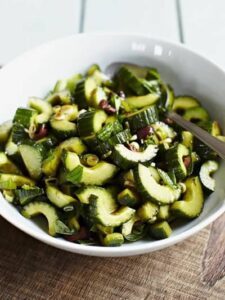 Looking for a refreshing and flavorful salad to add to your repertoire? Look no further than the Balsamic-Dressed Cucumber with Olives recipe. This delightful dish combines the crispness of cucumbers with the tanginess of balsamic vinegar and the briny goodness of olives, creating a vibrant and satisfying salad.
Looking for a refreshing and flavorful salad to add to your repertoire? Look no further than the Balsamic-Dressed Cucumber with Olives recipe. This delightful dish combines the crispness of cucumbers with the tanginess of balsamic vinegar and the briny goodness of olives, creating a vibrant and satisfying salad.
Contraindications
In general, the consumption of cucumbers is considered safe and well-tolerated by most people. However, there are a few situations where caution or restrictions may apply:
Allergies:
Some individuals may have allergies or sensitivities to cucumbers. If you experience any allergic reactions, such as itching, swelling, or difficulty breathing, discontinue consumption and seek medical attention.
Gastrointestinal Issues:
Cucumbers are generally easy to digest, but for individuals with certain digestive conditions like acid reflux or irritable bowel syndrome (IBS), excessive consumption of cucumbers may exacerbate symptoms. Monitor your own tolerance and adjust your intake accordingly.
Kidney Disorders:
Cucumbers are naturally high in water content and can act as a diuretic, increasing urine production. If you have a kidney condition or are on a specific fluid restriction, consult with your healthcare provider before consuming large amounts of cucumbers.
Medication Interactions:
If you are taking medications that affect blood clotting or blood sugar levels, it’s advisable to speak with your healthcare provider. Cucumbers may have a mild blood-thinning effect and can also slightly lower blood sugar levels. Adjustments to your medication may be necessary.
Pesticide Residues:
Conventionally grown cucumbers may contain pesticide residues. To minimize exposure, consider choosing organic cucumbers or wash them thoroughly before consumption.
As always, it’s recommended to consult with a healthcare professional or registered dietitian if you have any specific health concerns or conditions before making significant changes to your diet.
Fascinating Facts About Cucumbers
Natural Sunscreen:
Cucumber contains compounds like cucurbitacins and fisetin that exhibit mild UV protection properties. While not a replacement for traditional sunscreen, applying cucumber extract or juice topically may provide a slight barrier against harmful UV rays.
Musical Instrument:
In certain cultures, cucumbers have been used as makeshift musical instruments. By hollowing out the cucumber and blowing air through it, it can produce a unique, flute-like sound. This unconventional use showcases the versatility and creativity associated with cucumbers.
Stress Reduction:
The aroma of cucumbers has been linked to stress reduction and relaxation. Some studies suggest that inhaling the scent of cucumbers or cucumber-infused essential oils may have a calming effect on the nervous system, promoting feelings of tranquility and well-being.
Pest Repellent:
Cucumber peels contain a compound called trans-2-nonenal, which has been found to repel pests such as cockroaches and mosquitoes. Placing cucumber peels in areas prone to insect infestation may help deter these pests naturally, without the need for chemical pesticides.
Biodegradable Cleaning Agent:
Cucumber peels possess natural cleaning properties due to their enzymes and acids. When rubbed on surfaces like stainless steel or faucets, cucumber peels can help remove dirt, grime, and water stains effectively. Plus, they’re biodegradable, making them an eco-friendly alternative to conventional cleaning products.
Natural Breath Freshener:
Chewing on cucumber slices or cucumber peels can freshen breath naturally. The high water content helps stimulate saliva production, which washes away bacteria and food particles responsible for bad breath. Additionally, the phytochemicals in cucumbers may neutralize odor-causing compounds in the mouth.
Skin Toning Agent:
Cucumber contains compounds like caffeic acid and ascorbic acid, which have astringent properties that help tighten and tone the skin. Applying cucumber juice or slices topically can temporarily reduce the appearance of pores and improve skin texture, giving it a refreshed and rejuvenated look.
Bioluminescent Cucumbers:
Some species of cucumbers, particularly deep-sea varieties, exhibit bioluminescence. These cucumbers emit a soft, eerie glow in the dark ocean depths, serving as a natural form of illumination. This unique adaptation helps them attract prey or communicate with other organisms in their light-deprived environment.
Cucumber Clocks:
Believe it or not, cucumbers were historically used as makeshift timekeeping devices in some regions. Farmers would slice a cucumber into precise segments and use it as a rudimentary clock, with each slice representing a specific interval of time. This unconventional timekeeping method underscores the resourcefulness of agricultural communities in the past.
Cucumber Sex Determination:
Unlike many plants, cucumbers possess separate male and female flowers on the same vine. What’s even more fascinating is that the sex of cucumber plants can be influenced by environmental factors such as temperature and light exposure during the flowering stage. This phenomenon, known as gynoecy and andromonoecy, adds a layer of complexity to cucumber cultivation.
Cucumber Power Source:
Researchers have explored the potential of using cucumbers as a source of renewable energy. By harnessing the natural fermentation process of cucumbers, scientists have experimented with generating electricity from cucumber-based microbial fuel cells. While still in the experimental stages, this unconventional energy source highlights the innovative applications of cucumbers beyond the kitchen.
Cucumber Cult Worship:
In certain cultures throughout history, cucumbers have been revered as symbols of fertility and abundance. Ancient civilizations like the Egyptians and Romans associated cucumbers with fertility deities and incorporated them into religious ceremonies and rituals. This cultural reverence for cucumbers sheds light on the profound significance of this humble vegetable in human history.
Cucumber Language:
In the Victorian era, cucumbers were used as a form of secret communication between lovers. Young couples would exchange cucumbers adorned with ribbons or flowers as tokens of affection, each arrangement conveying hidden messages and sentiments. This unique form of “cucumber language” allowed individuals to express their feelings discreetly in a society where overt displays of affection were frowned upon.
Cucumber Navigators:
In a remarkable display of navigation skills, certain species of sea turtles have been observed using the Earth’s magnetic field to locate cucumber patches on the ocean floor. These turtles rely on the subtle magnetic cues given off by underwater cucumbers to guide their foraging behavior, demonstrating the surprising interconnectedness of marine ecosystems.
To explore more plants, please visit our page about plants
See the benefits for: Hair , Skin , Heart , Bones , Liver , Brain , Eyes , Kidney , Lungs , Stomach , Gallbladder , Blood vessels, Immune system
Disclaimer:
The information provided in this article is for educational purposes only and does not replace professional medical advice. Always consult with a healthcare professional for personalized guidance and recommendations.

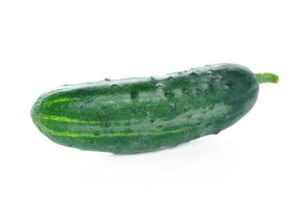 Antioxidant and Anti-inflammatory Properties
Antioxidant and Anti-inflammatory Properties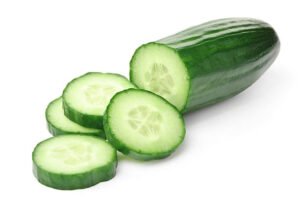 Digestive Health
Digestive Health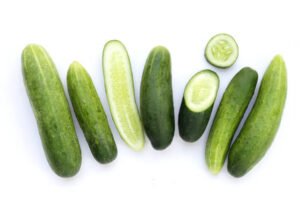 Skin Health
Skin Health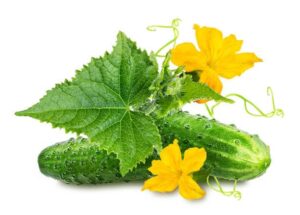 Weight Management
Weight Management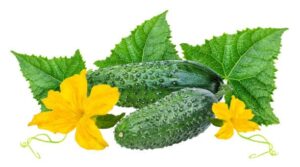 Heart Health
Heart Health Bone Health
Bone Health